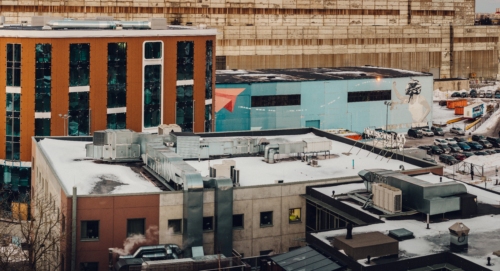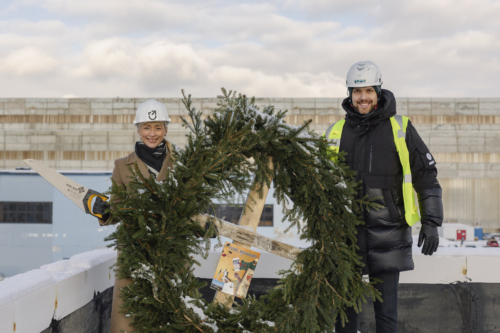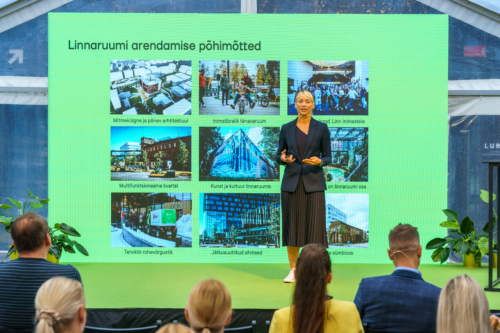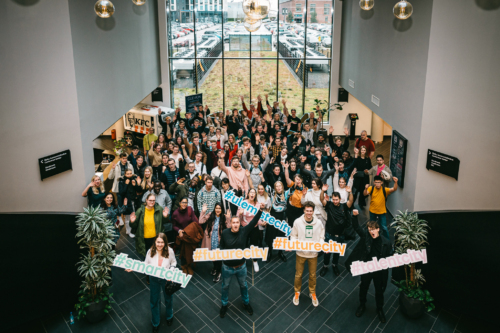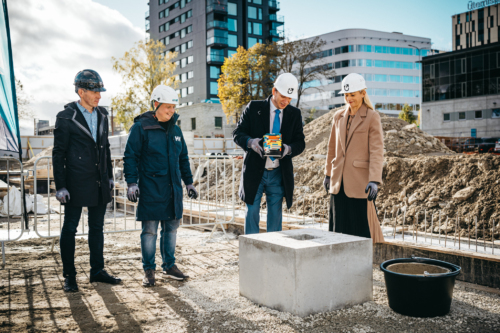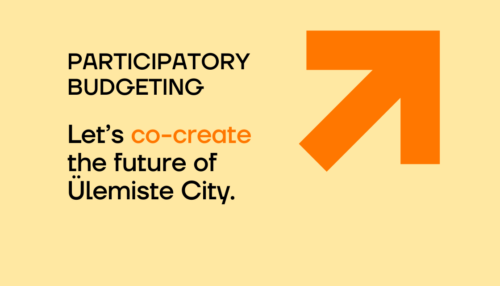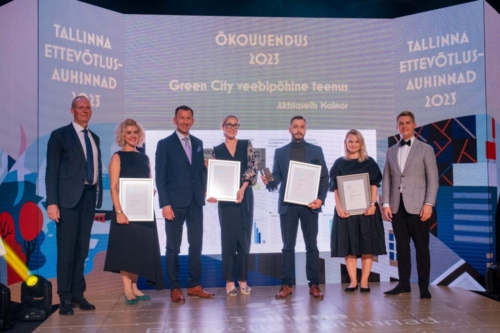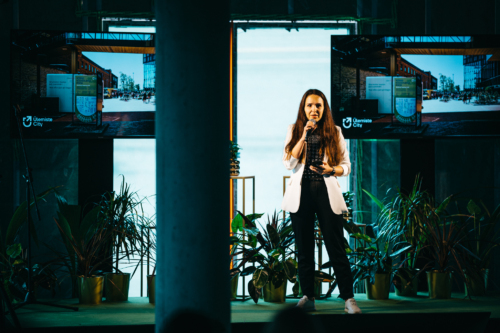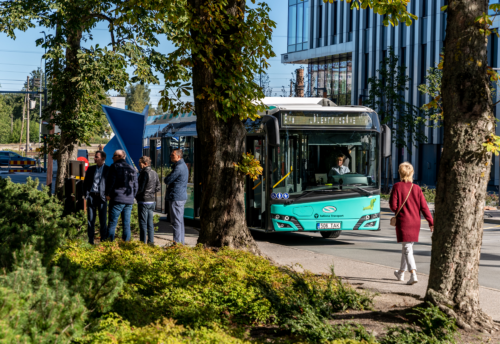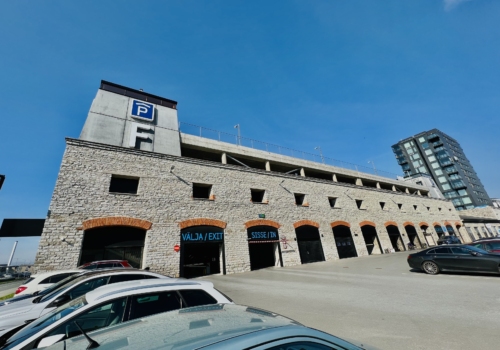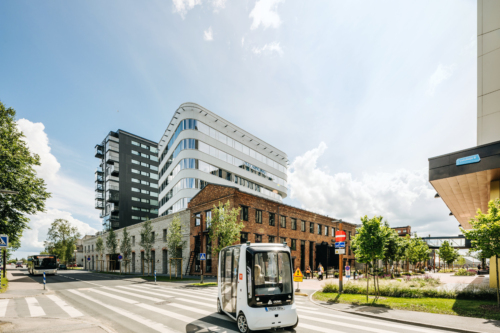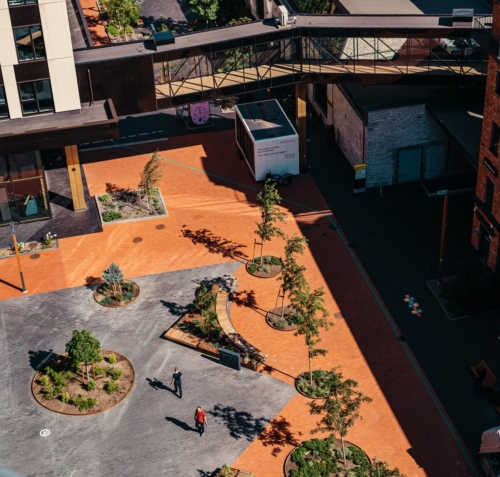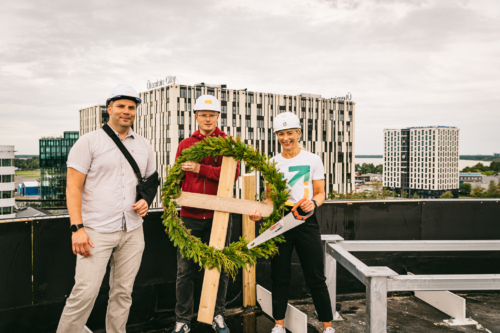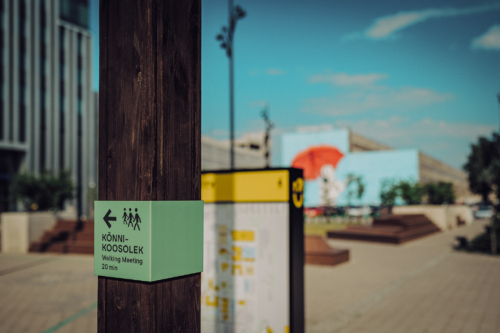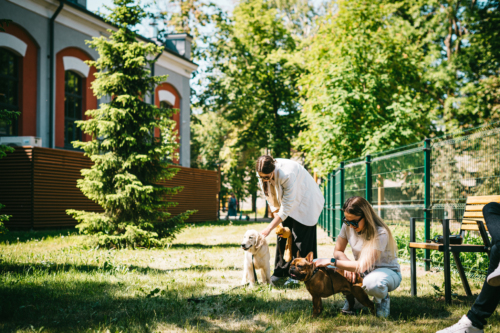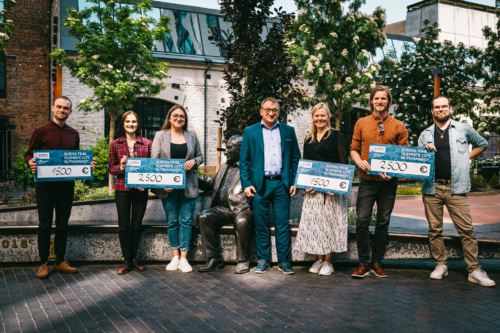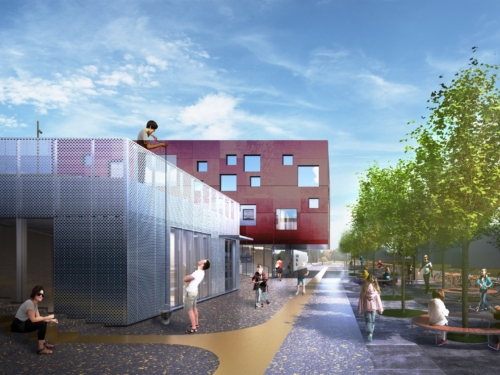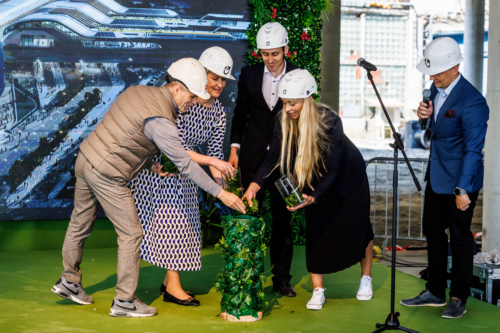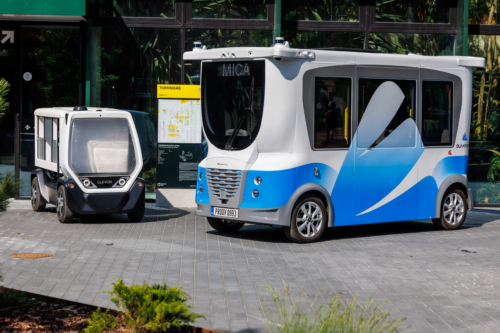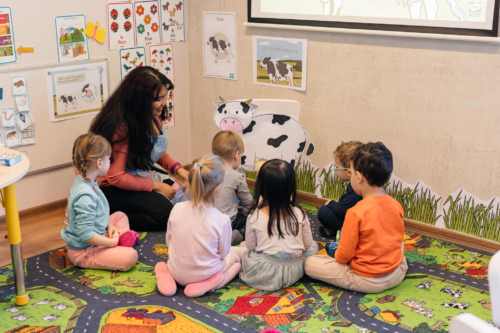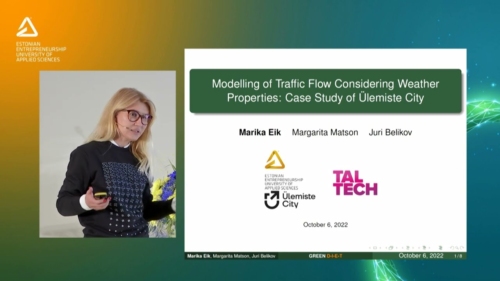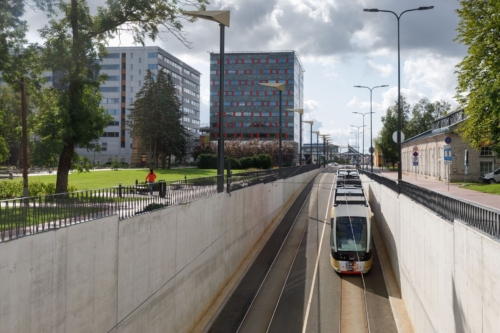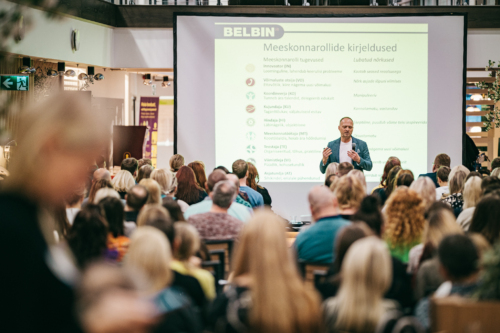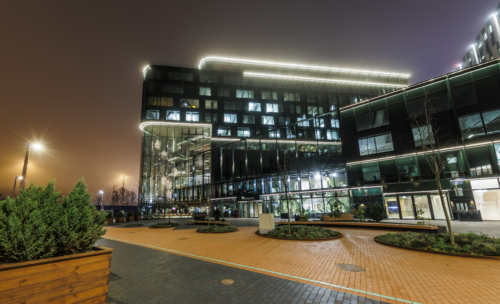The money circulating in an economy ravaged by the corona pandemic is pulled like a magnet in the direction of everything green – Gert Jostov
‘Predicting the future is generally a thankless job, but there are still indicators that clearly show where the world is heading and what the trends of tomorrow are. Money speaks clearer than all kinds of palmists, conformists and nonconformists – where it flows and where it comes from,’ says Gert Jostov, Chairman of the Management Board of Technopolis Ülemiste, in an opinion piece.
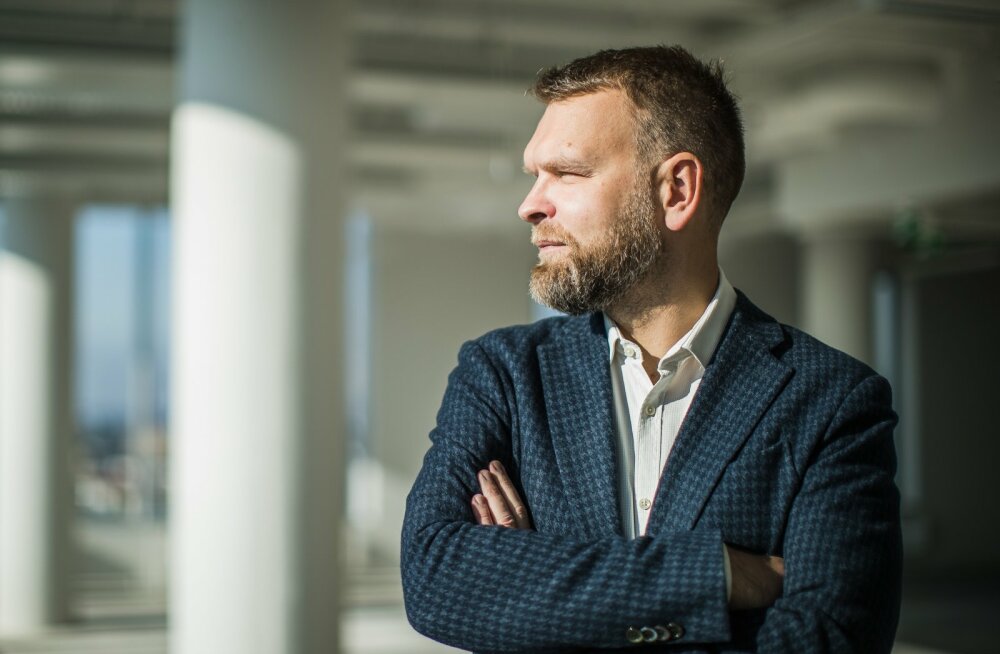
The money circulating in the world’s economy, which has been ravaged by the corona pandemic, is pulled like a magnet in the direction of everything green. Within the glow of the flames of the threatening climate crisis renewable energy companies and green technologies are liked not only by the anxious consciences of investors but increasingly also the wallet, offering record returns.
There is no point in denying the green trend in the financial markets. The new generation of investors is not only interested in fast profits, but in sustainability as well. In addition to the old and tired fossil money, which still makes the latest profits from fading inertia, the young and the green are making their way vigorously – there is more and more of this money and it has a future.
Money is pouring out of areas without a future
Tesla’s finest hour is yesterday’s news; today, hydrogen technology shares are rallying, even surpassing the Nasdaq Composite Index. Carbon capture and energy-storage technologies, the circular economy and even public transport also have great growth potential.
In return, money pours out from where there is no longer hope for happiness and prosperity. Investment funds are placing increasing emphasis on supporting climate goals, forcing companies to engage in green development and, figuratively speaking, pulling the cord from unsustainable business models.
A recent issue of Äripäev included an article on how a large U.S. investment fund sent a warning to 500 companies that if they continue to ignore climate issues, the fund will start withdrawing money from it. Norway’s large fund Storebrand withdrew its money from coal mines, although they are still profitable today. Tomorrow not so much.
The final green turn is more real today than ever before. A healthy and strong planet that will be the legacy of future generations rests on three large pillars. First, a conscious and determined public sector, in which policymakers are creating favourable conditions to achieve climate goals, squeezing processes taking place in the economy and constantly increasing the share of research funding in budget policy.
Second, businesses and large consumers have a responsibility to minimise the environmental impact of their activities and to channel ever increasing amounts of turnover into the adoption of new environmentally friendly technologies.
Thirdly, investors are moving along with this wave, directing their money to where it will grow and multiply, while also working for the benefit of the world and the future, where the obtained profits can be enjoyed for decades and centuries.
Estonia must keep pace with the Nordic countries
The Nordic countries are the leaders in achieving the climate neutral goal and Estonia must keep pace with them.
Much has already been achieved today, for example, Taavi Veskimägi, Chairman of the Management Board of Elering, recently confirmed that the Estonian energy system has gained independence from Narva power plants belonging to the previous era and can cover the country’s basic needs with a network of cogeneration plants, wind, and solar power plants. Residual energy can be used to an ever-increasing extent, and the technological capacity to store surpluses is improving year by year.
The real estate sector currently emits a third of all CO2 emissions, so it is our sector that must inevitably be among the first to strive for CO2 neutrality. For this purpose, the rapidly growing Ülemiste campus switched completely to green energy in October, which reduces the campus’s environmental footprint by the annual energy consumption of 5000 families.
Considering that nearly 12,000 people live, study and work in Ülemiste City, which covers 36 hectares, and that almost 500 businesses operate on 130,000 square meters of office space, the breakthrough was exponential. When only a month earlier only about five per cent of the energy being used there was green energy, today we are consuming 100 per cent renewable energy.
The pandemic offers a rare opportunity to achieve climate goals more quickly. The corona crisis has created unprecedented conditions for energy saving and the introduction of green technologies around the world. Many hotels and office buildings have used depopulation to conduct major repairs, improving the energy efficiency of buildings and switching to renewable energy.
The state and the public sector in general can also use the period of crisis to invest in the modernisation of real estate, with both the fragile domestic economy and long-term climate goals winning. The benefits are manifold.
The use of space also has a role to play
Environmentally conscious real estate development pays off both in terms of savings from lower maintenance costs and in terms of future market value. As a rising trend, the world’s rental markets are also showing the market advantage of environmentally conscious rental premises which, as a valued living and working environment, offer owners a better return. The most environmentally friendly energy is that which remains unused.
In addition to the introduction of renewable energy and green technologies, the use of business space plays an important role in reducing harmful emissions. Modern workspaces are designed to meet the real needs of employees and are often more compact and efficient than regular offices. Sharing space and services also helps to successfully reduce the environmental footprint.
The goal of any country, company, investor, or ordinary person is not to comply with the 2015 Paris Agreement or any regulations born out of distance from everyday life. Above all, the goal is to live well. Healthy, wealthy, in good relationships, enjoying quality living and working environments. Today, tomorrow, in fifty years, in one hundred years.
It is this common goal that creates the strong demand for environmentally friendly and sustainable products, services, buildings and growing green investment opportunities. Tomorrow’s good life begins with today’s green way of thinking.
Read the original article and other similar opinion pieces here: https://arileht.delfi.ee/news/investeeri/ulemiste-linnaku-juht-koroonapandeemiast-rasitud-majanduses-ringlev-raha-tombub-magnetina-koige-rohelise-poole?id=91538213
Photo: Kiur Kaasik
